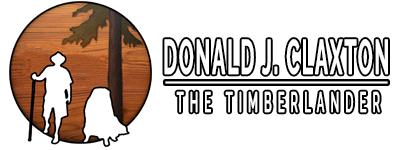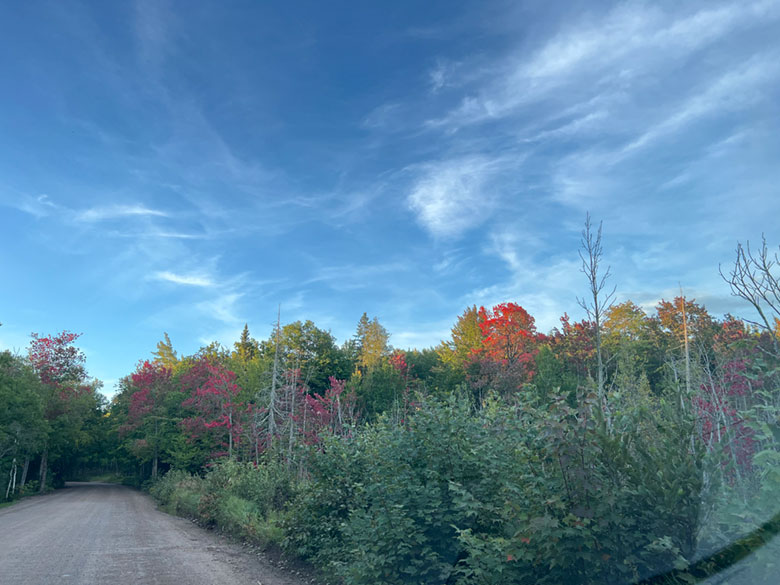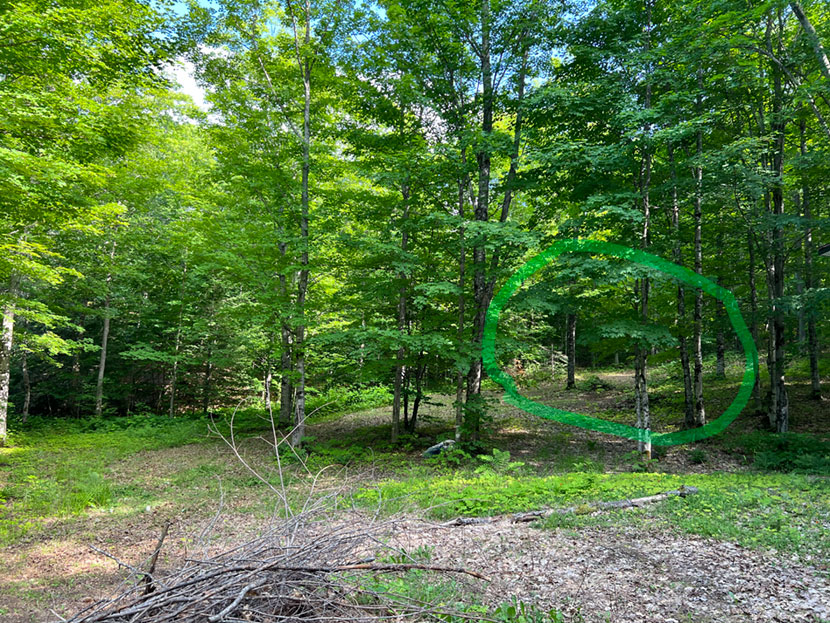For much of my life I have been in love with writing. If you jump over to TraverseAdventures.com, you’ll see a reference to the window at 208 Fortress Street on what was KI Sawyer AFB, in Gwinn, Michigan. From that window of opportunity, I would sit at my kidney bean desk and a children’s typewriter and construct stories.
Admittedly, I long have had a problem in my writing. I like people and dislike controversy so much, I found it hard to create characters who I began to care for and then needed to throw every sort of imaginable adversity in their way to make a compelling tale. As I told the class I was in at SMU over the summer, “I hated to skewer my characters.” Essentially, however, that’s what makes a good story; one worth reading, one that has something to say.
My life has changed drastically over the past four years. I have had a lot of bad things happen to me emotionally, physically and any other kind of -ly you can come up with to where I’ve been able to punch through what I didn’t have in me before. I’ve experienced how bad things happen to people that shouldn’t, how nutty and dishonest people can wreck one’s life. I’ve witnessed how mean and disingenuous people really can be. Disillusioned now, I have seen how the truth has so little to do with what goes on in court rooms, and how jealous, greedy and evil some people really can be. I’ve seen what demise the use of meth can bring about to a person and their family. Ultimately, I’ve learned to put new value in the simpler things in life.
Christopher Vogler‘s The Writer’s Journey
There are two upcoming classes at SMU I look forward to beginning the next two weeks. One is called Story, a five-week class that features the book The Writer’s Journey by Christopher Vogler. The second is a class called, “Stakes,” which is a two-session class designed to help writers “raise the stakes” their characters will endure in a work.
I’ve begun reading Vogler’s work, which also led me to Barnes and Noble yesterday to purchase Joseph Campbell’s The Hero With A Thousand Faces. Vogler wraps a lot of what he has to stay around the works of Campbell, which are largely based on premises of Freud and Jung–and as much as modern psychology has undone the concepts they put forward years and years ago, I have to wonder about some of what Campbell says–but I’m enjoying the aspects of what Vogler has put forward. But Campbell also dissects the essential elements of what stories have been about for thousands of years of recorded human history, largely through myths. Volger and Campbell’s contention is that stories, even today, are still deeply rooted in the tales of yesteryear and will be until the end of time.
At this writing, I’ve only ingested the first part of the book but it has been exceedingly insightful into the essential elements of the characters a successful work theoretically should contain.
Of course, a story needs a hero. But then there are certain other foke that a hero must get help from, or be opposed by, to make a good story work. I highly recommend this book already. Yes, I’m still a fan of Bob McKee’s STORY, but Vogler is able to say things in some ways that are simpler to comprehend than McKee.
The Privacy Patriots Progress Update
For the Stakes class, yesterday, each of us in class were to have sent in two chapters of our work, and a 12-point plan for our “hero’s journey.” That’s a dynamic spelled out in the Vogler book where the progress of a story is broken down into 12 logical steps from setting the stage of the hero’s ordinary world, getting called to go on an adventure, refusing to go, meeting with a mentor, crossing the first threshold or point of no return, going through tests, meeting allies and fending off enemies, to approaching the lair of the biggest enemy, the ordeal, getting the reward or seizing the sword, the road back, the resurrection or climax, and then the return with the elixir.
Essentially, any good tale is going to have all of those elements, not necessarily in that order, but they will be contained in the work to make it compelling to read or watch.
In some ways, it almost ruins the reading or watching of books or movies, because instead of concentrating on the content of the story, I’m now more mindful of which element is in play and where. The trick of all writers though is to make the tale so compelling, that while one might be aware of those elements, the reader is still captivated.
So I’ve begun the process of writing the book. The two chapters I sent in were a prologue–which many books argue is out of fashion today, but if you go to the book store and pick up a book, it’s still likely to have one–and then blocks of what’s theoretically going to happen in establishing the “ordinary world” of my primary characters.
This past summer, along with massive client projects, I’ve managed to build some in-depth character profiles for each person in my book. And now, almost as if I were a character in a story about writing a book, I’ve been given my call to adventure (START WRITING IT WILL YA?!) and in part, answered it metaphorically with, “I’m not ready.”
My two instructors over the next six weeks are going to be the “meetings with the mentors” to get me further down the road with this tale I so desire to tell. It’s time to skewer some characters and make them hurt before helping them emerge on the other side, stronger, better and more human because of it. Much like the last four years has done to me.
















0 Comments